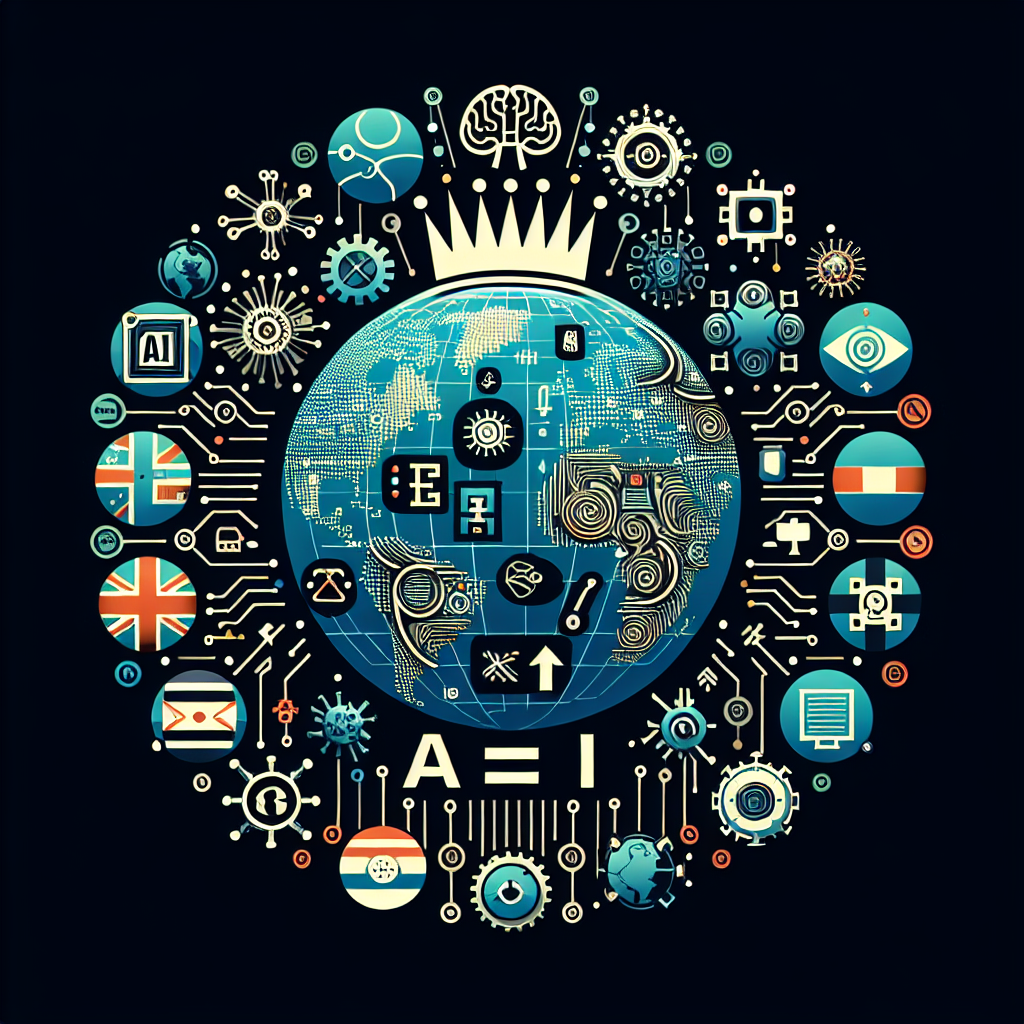The Race for AGI Dominance: How Countries and Companies are Competing for Supremacy
Artificial General Intelligence (AGI) is a concept that many believe will revolutionize the way we live and work in the future. AGI refers to a type of artificial intelligence that possesses the ability to understand, learn, and apply knowledge in a way that is indistinguishable from human intelligence. This level of intelligence would allow machines to perform a wide range of tasks that currently require human intelligence, such as problem solving, reasoning, and creativity.
As the potential of AGI becomes increasingly apparent, countries and companies around the world are racing to develop and harness this technology for their own benefit. The race for AGI dominance is on, and the stakes are high. In this article, we will explore how countries and companies are competing for supremacy in the field of AGI, and what the implications of this race may be for the future.
The Race for AGI Dominance
The race for AGI dominance is driven by a number of factors, including economic competitiveness, national security, and the desire to be at the forefront of technological innovation. Countries and companies are investing billions of dollars into research and development of AGI in the hopes of gaining a competitive edge in the global market.
One of the key players in the race for AGI dominance is the United States. The U.S. government has made significant investments in AI research and development, and has established initiatives such as the National Artificial Intelligence Research and Development Strategic Plan to advance the field of AI. Companies like Google, Microsoft, and Amazon are also heavily involved in the development of AGI technology, and are competing with each other to be the first to achieve breakthroughs in this area.
China is another major player in the race for AGI dominance. The Chinese government has made AI a national priority, and has set ambitious goals for the development of AI technology in the country. Chinese companies like Baidu, Alibaba, and Tencent are also investing heavily in AGI research and development, and are working to catch up to their American counterparts in the field of AI.
Other countries, such as Russia, Japan, and South Korea, are also investing in AI research and development in an effort to compete in the global race for AGI dominance. These countries are working to develop their own AI technology and talent in order to stay competitive in the rapidly evolving field of artificial intelligence.
Implications of the Race for AGI Dominance
The race for AGI dominance has significant implications for the future of humanity. AGI technology has the potential to revolutionize industries such as healthcare, transportation, finance, and manufacturing, and could have a profound impact on the way we live and work in the future.
However, the development of AGI also raises a number of ethical and societal concerns. The prospect of machines with human-level intelligence raises questions about the implications of such technology for human society and the potential risks associated with the development of AGI. Issues such as job displacement, privacy and security, and the potential for misuse of AGI technology are all concerns that must be addressed as we move forward in the development of artificial intelligence.
FAQs
Q: What is AGI?
A: AGI, or Artificial General Intelligence, refers to a type of artificial intelligence that possesses the ability to understand, learn, and apply knowledge in a way that is indistinguishable from human intelligence. AGI has the ability to perform a wide range of tasks that currently require human intelligence, such as problem solving, reasoning, and creativity.
Q: Why is there a race for AGI dominance?
A: The race for AGI dominance is driven by a number of factors, including economic competitiveness, national security, and the desire to be at the forefront of technological innovation. Countries and companies around the world are investing billions of dollars into research and development of AGI in the hopes of gaining a competitive edge in the global market.
Q: What are some of the implications of the race for AGI dominance?
A: The race for AGI dominance has significant implications for the future of humanity. AGI technology has the potential to revolutionize industries such as healthcare, transportation, finance, and manufacturing, and could have a profound impact on the way we live and work in the future. However, the development of AGI also raises a number of ethical and societal concerns, such as job displacement, privacy and security, and the potential for misuse of AGI technology.
In conclusion, the race for AGI dominance is shaping up to be one of the most important competitions of the 21st century. Countries and companies around the world are investing heavily in the development of AGI technology in the hopes of gaining a competitive edge in the global market. The implications of this race are far-reaching, and it is crucial that we address the ethical and societal concerns associated with the development of AGI as we move forward in this exciting and rapidly evolving field.

